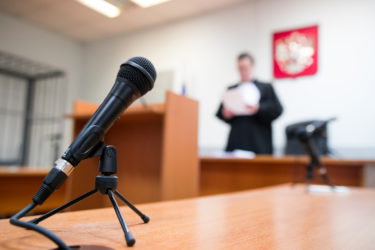
So picture this scenario:
You are African American. A court reporter taking notes during your criminal case makes an error in the transcript that ends up becoming a point of contention in an appeal. An appeal that you lose. You probably would not have lost the case if your words had been reported accurately. Now you’re facing penalties, or even worse, prison time because of that court reporter’s mistake.
If you’re a person who uses a dialect like African-American Vernacular English, also known as AAVE, that situation is much more likely to happen to you, according to research in Philadelphia. This is why having a digital court reporter via Courtscribes is so very important. It can be the difference between jail and freedom.
This study found serious errors in court transcripts that materially changed what people said or rendered their speech as incomprehensible gibberish. People perceived as speaking “incorrectly” already deal with a substantial social stigma, and apparently, that includes courtroom settings.
How Can We Solve This Problem?
When a court reporter is not familiar with a given dialect, their lack of understanding can influence the way they record one’s speech (testimony). Unless someone reviews and contests the transcript in a timely manner, it may go on the record as incorrect. This will become a much more difficult problem to correct months or years in the future.
This problem can even reinforce biases that put certain people at a disadvantage in the courtroom. For black defendants, testifying in ‘AAVE’ may have a serious impact on how those defendants are perceived by juries, as well as how their words are recorded for posterity.
Many states are starting to transition away from the classic court recorder to audio or video recordings, which capture a complete digital record of everything that was said. This can be used instead of or in addition to transcripts for accuracy. Much like the services that Courtscribes offers. One thing courts shouldn’t be relying on though is an automated transcription. Anyone who has spoken text into their cellphone in an attempt at transcribing a message would agree.
The technologies used for speech recognition just aren’t there yet. This is true in the case of many accents and dialects, where word order and inflection can carry very different meanings.
Solutions are Coming
The solution to this problem is multifaceted. Court reporters across the country may need more training to improve their accuracy with both transcribing and paraphrasing when people speak with accents or dialects. That training should be regionally-appropriate as well because different aspects and dialects have variable representations depending on locale.
Also using digital recordings as a backup may be a good idea. Transcripts can ensure that information is available in multiple formats, with the original recordings retained to cross-reference. The stakes are simply too high for these kinds of mistakes.
Detailed digital recordkeeping benefits both courts and defendants. Not only does it serve that purpose, but it will also aid future dialect researchers who may be interested in looking at a large body of material stored from year to year to learn more about how dialects and accents evolve.
